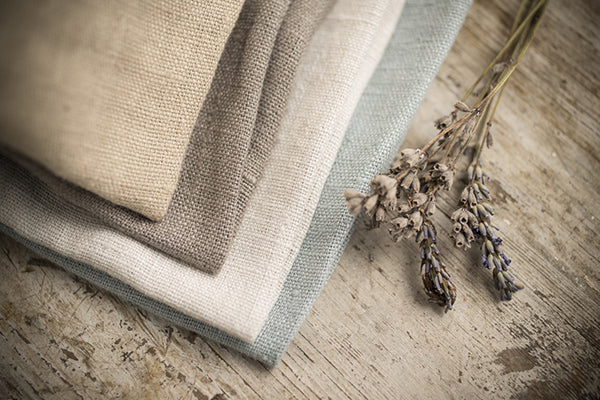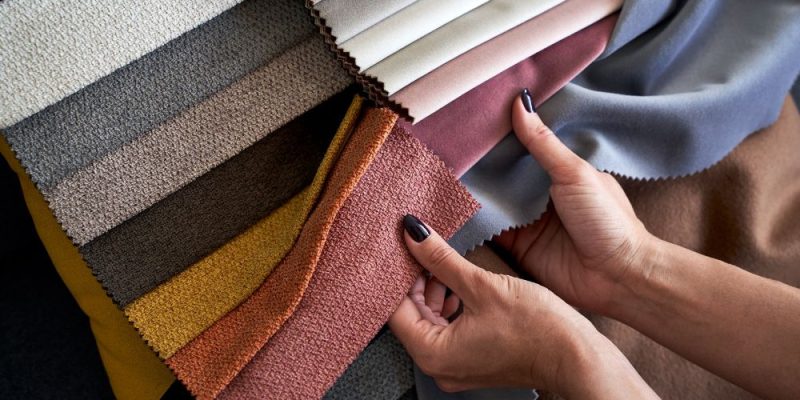Linen has made a sharp comeback in men’s wardrobes. Designed to face hot, humid weather, linen garments deliver on comfort, style, and breathability like few others. Men now look for fabrics that feel as good as they look. Linen checks all the boxes, which explains why you see it everywhere from summer parties to boardrooms.
This post breaks down why linen fabric is dominating men’s fashion. You’ll learn how linen is made, what makes it unique, which linen pieces belong in your closet, and how to care for them so they last for seasons. If you want a style that doesn’t sacrifice comfort, this guide covers everything you need to know about linen for menswear.
What is Linen Fabric
Origins and Production
Linen comes from the stalks of the flax plant, one of the oldest cultivated plants in human history. Ancient Egyptians and Mesopotamians wore linen for centuries. The appeal was clear even then. Making linen is labor-intensive. Flax stalks are harvested, the fibers are separated, then spun and woven into fabric. No shortcuts. Quality begins with this process.
Unique Properties
Linen stands apart due to its fiber structure. Linen fibers are longer and stronger than cotton’s, and the weave is less dense. This gives linen its crisp feel and visible texture. The result is a fabric that is lightweight, quick-drying, and long-lasting. High breathability and moisture management aren’t just marketing buzzwords with linen; they’re built into the fiber.
Benefits of Linen for Menswear
Wearing linen is about smart, practical style. Here’s why men are making the switch.
Superior Comfort
Linen sits lightly on the skin. The natural fiber structure allows air to circulate, keeping you cool even in heat waves. Unlike synthetic fabrics, linen doesn’t cling to the body, minimizing sweat patches and stickiness.
Excellent Breathability
Air passes effortlessly through linen. This keeps your body temperature regulated, especially when the mercury climbs. It’s the difference between feeling stuffy and staying fresh.
Durable and Long-Lasting
Linen is one of the strongest natural fibers. A well-made linen shirt or pants can handle repeated washing and wear without falling apart. Over time, linen gets softer but maintains its integrity, which means better value for your investment.
Distinct Style
Linen’s texture gives depth and character to any outfit. It offers a matte finish—not too shiny, not dull. Slight creases are normal and accepted, creating an effortless, modern look that works from the beach to the conference table.
Moisture-Wicking
Linen absorbs up to 20% of its weight in moisture without feeling damp. For anyone dealing with high humidity, linen’s ability to wick moisture away is a key benefit. You stay dry, odor-free, and comfortable all day.

Linen Garments for Men
Linen adapts to a wide range of men’s clothing. Here are the essentials worth having.
Linen Shirts
Linen shirts are a staple for a reason. They’re lightweight, available in both relaxed and fitted cuts, and pair easily with jeans, chinos, or shorts. Long-sleeved linen shirts can be dressed up with a blazer or worn alone for a casual office look.
Key Features
- Button-down or regular collar
- Slim or relaxed fit options
- Solid, check, or striped patterns
Linen Pants
Swap heavy denim or wool for linen pants in warm months. They offer ease of movement while keeping you cool. Choose tapered or straight cuts for a modern silhouette.
Key Features
- Drawstring waists for casual wear
- Flat-front for formal occasions
- Neutral shades like khaki, olive, and navy
Linen Suits
Linen suits aren’t just for holidays. Today’s tailored options look sharp at business meetings and weddings alike. A linen blazer with structured pants strikes a balance between professional and laid-back.
Key Features
- Full suits or separates
- Slightly structured shoulders
- Trousers with a clean break
Linen Shorts
Linen shorts provide a breezy alternative to cotton or polyester. They’re ideal for summer weekends or holiday travel.
Key Features
- Above-knee length
- Elastic waistband or tailored fit
- Pocket options for practicality
Linen Accessories
Accessories made from linen bring subtle texture to an outfit. Think linen pocket squares, ties, and scarves.
Key Features
- Lightweight construction
- Soft on the skin
- Available in classic colors
How to Style Linen Outfits
Linen gives plenty of room for creativity. Use these tips to build stylish looks that work for work, weekends, or travel.
Stick to Classic Colors
White, beige, navy, and gray are easy starting points for most linen outfits. These shades work for most skin tones and layer well with other pieces in your wardrobe. Earthy colors like olive or rust add depth if you want a change.
Mix and Match Textures
Pair linen with cotton or lightweight wool to add richness to your look. A linen shirt with cotton chinos or a linen blazer over a merino crew-neck brings contrast without clashing.
Roll the Sleeves
For casual occasions, rolling the sleeves of a linen shirt adds ease while showing off a watch or bracelets. The natural wrinkles add a soft, relaxed touch—no need to aim for a pressed look.
Choose the Right Footwear
Linen trousers or shorts pair well with loafers, minimalist sneakers, or sandals. Slip-ons work best for maintaining clean lines.
Accessorize with Confidence
Add a linen pocket square or tie to a cotton shirt or blazer. A woven belt or canvas watch strap complements linen well, enhancing texture without being overpowering.
Layering for Versatility
A lightweight linen jacket or overshirt can be layered over tees or polos during cool evenings. Stick to thin, breathable layers to maintain comfort.
Care and Maintenance
Taking care of linen ensures it stays in top shape year after year.
Washing Tips
- Wash linen in cold or lukewarm water using a gentle cycle.
- Use mild detergent. Bleach or harsh chemicals weaken the fibers.
- Wash inside out to preserve color and reduce pilling.
- Avoid overcrowding the washer; linen needs room to move.
Drying
- Air dry for best results. Hang shirts or pants on padded hangers to prevent distortion.
- If using a dryer, choose low heat and remove while slightly damp to prevent over-drying, which can stiffen the fibers.
Ironing and Storage
- Linen creases are normal and part of the charm. If you prefer a crisper look, iron while the fabric is still slightly damp.
- Use a steam iron on medium heat.
- Store linen garments on hangers to minimize deep creases or gently roll for more delicate pieces.
Stain Removal
- Treat stains immediately with cold water and mild laundry soap.
- Avoid scrubbing hard, which can roughen fibers.
- For tough stains, soak the garment in a mixture of water and vinegar before washing.
Seasonal Storage
- Store linen in breathable garment bags during off-seasons.
- Keep in a cool, dry place to prevent mildew.
Boost Comfort and Style with Linen for Menswear
Men’s linen clothing is more than a summer trend. With a sharp focus on comfort, moisture control, and natural texture, linen delivers practical benefits and timeless style. Linen shirts, suits, pants, and accessories suit every occasion from daily office wear to getaway weekends. Easy care routines mean your investment in linen repays you every season.
If you’re aiming for clothing that feels as good as it looks, linen is the answer. Start with a well-fitted shirt or a pair of pants in a classic shade. Experiment with combinations and accessorize to create looks that are uniquely yours. Linen’s low-maintenance care means you’ll enjoy each piece, season after season.
Sustainable fabrics are designed to reduce environmental impact and support ethical, eco-conscious production.
Organic cotton is grown without harmful pesticides and uses significantly less water than conventional cotton.
Linen comes from the flax plant, which requires minimal water, pesticides, and energy to grow.
Hemp is a fast-growing, soil-enriching crop that thrives with little intervention and regenerates soil health.
TENCEL™ is a modern fabric made from sustainably sourced wood pulp, produced in a closed-loop process that recycles water and solvents.
Cupro (Bemberg) is created from cotton linter, a by-product of cotton processing, and manufactured using eco-friendly, closed-loop systems.
These fabrics offer biodegradability, breathability, and softness while reducing pollution and resource consumption.
They are central to the movement toward a more sustainable, ethical, and responsible fashion industry.
Explore our extensive collection of custom-printed, ready mill-dyed, and yarn-dyed fabrics designed to perfectly complement your upcoming collection. For tailored support or any questions, contact us at hello@fabriclore.com. Experience effortless, genuine, and cost-effective fabric sourcing with Fabriclore.

Comments